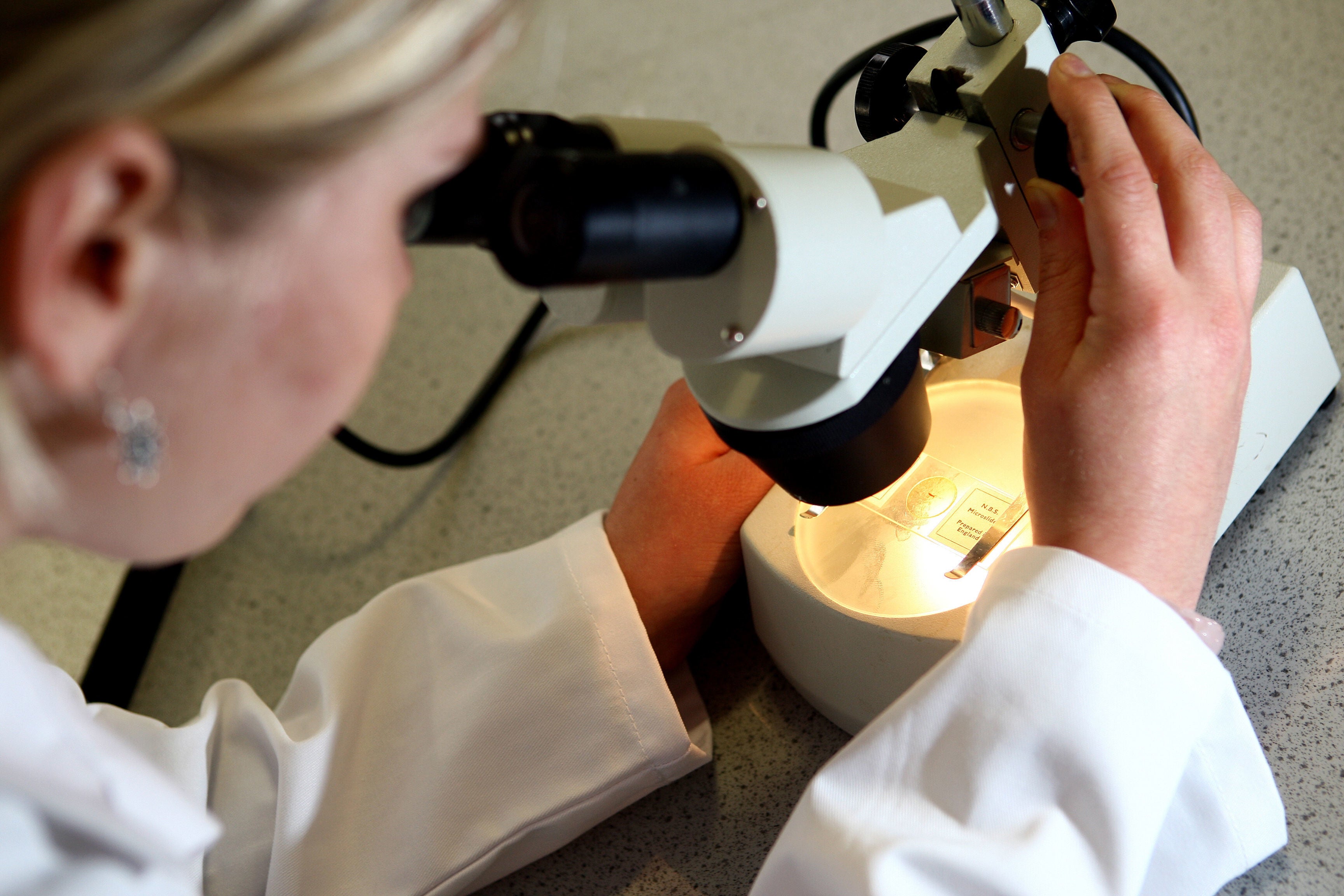High insulin levels linked to increased risk of pancreatic cancer
People with obesity and type 2 diabetes are more likely to get pancreatic cancer, research has found

Your support helps us to tell the story
From reproductive rights to climate change to Big Tech, The Independent is on the ground when the story is developing. Whether it's investigating the financials of Elon Musk's pro-Trump PAC or producing our latest documentary, 'The A Word', which shines a light on the American women fighting for reproductive rights, we know how important it is to parse out the facts from the messaging.
At such a critical moment in US history, we need reporters on the ground. Your donation allows us to keep sending journalists to speak to both sides of the story.
The Independent is trusted by Americans across the entire political spectrum. And unlike many other quality news outlets, we choose not to lock Americans out of our reporting and analysis with paywalls. We believe quality journalism should be available to everyone, paid for by those who can afford it.
Your support makes all the difference.Patients with obesity and type 2 diabetes are at higher risk of contracting pancreatic cancer, a study has found.
Researchers at the University of British Columbia in Canada have found a direct link between high insulin levels and the condition.
It provides the first detailed explanation as to why people with the two conditions are at increased risk of the fifth biggest cancer killer in the UK, with 9,000 deaths every year.
Pancreatic Cancer UK reports it is the tenth most common cancer in the country, with 10,500 people diagnosed in 2018.
Incidence rates are projected to rise by 5 per cent in the UK between 2023-2025 and 2038-2040, according to Cancer Research UK.
Pancreatic cancer had been linked to obesity and type 2 diabetes in the past but researchers had been unable to establish the cause prior to the research.
According to the new study, which was conducted on mice, excessive insulin levels overstimulate pancreatic acinar cells, which produce digestive juices. This overstimulation leads to inflammation that converts these cells into precancerous cells.

Co-senior author Dr James Johnson, a professor in the department of cellular and physiological sciences at the University of British Columbia (UBC), said: “Alongside the rapid increase in both obesity and type 2 diabetes, we’re seeing an alarming rise in pancreatic cancer rates.
“These findings help us understand how this is happening, and highlights the importance of keeping insulin levels within a healthy range, which can be accomplished with diet, exercise and in some cases medications.”
The new findings show insulin supports the physiological function of pancreatic acinar cells in producing digestive enzymes that break down fat-rich foods.
However, at high levels, the increased action can inadvertently foster pancreatic inflammation and the development of precancerous cells.
Researchers suggest it may pave the way for new cancer-prevention strategies and treatments that target insulin receptors in acinar cells.
Senior author Dr Janel Kopp, assistant professor in the department of cellular and physiological sciences at UBC, said: “We hope this work will change clinical practice and help advance lifestyle interventions that can lower the risk of pancreatic cancer in the general population.
“This research could also pave the way for targeted therapies that modulate insulin receptors to prevent or slow the progression of pancreatic cancer.”
Join our commenting forum
Join thought-provoking conversations, follow other Independent readers and see their replies
Comments